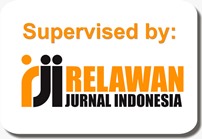PEER-BASED FINANCIAL PRACTICES: INSIGHTS FROM ARISAN SYSTEMS
Abstract
This study aims to analyze "arisan," a social gathering common in Indonesia, from the perspective of receivables accounting and investment. The research uses a qualitative descriptive method with an interpretive approach to understand the experiences of participants in Padang. Informants were selected based on their ability to explain their involvement in "arisan," particularly focusing on unique models not commonly found in other areas. Random sampling was used to determine observation locations, allowing researchers to observe and conduct interviews effectively. Data analysis follows the Miles, Huberman, and Saldana model, where data reduction occurred alongside collection to capture the informants' perspectives. The study reveals that participants' motivations for joining "arisan" often stem from a desire to save money and manage receivables. When members receive their funds early, it is viewed as an investment, reflecting their economic motivations. Additionally, some participants use "arisan" as an investment tool, contributing goods or money equivalent to goods to protect their assets from inflation. In conclusion, "arisan" serves not only as a social activity but also as a financial mechanism, where members recognize funds as receivables or investments, offering unique insights into local economic behavior.
Keywords: Accounting, Expenditure Cycle, Account Receivable and investments
Full Text:
PDFReferences
Abidin, Z. , & R. H. (2013). Tradisi Bhu- buwn sebagai Model Investasi di Madura. Journal of Social and Is- Lamic Culture, 20i2.34.09(09), 103115.
Akbar, Muh. F., Suprapto, S., & Surati, S. (2018). Partisipasi Masyarakat Dalam Perencanaan Pembangunan di Desa Jatimulya Kabupaten Boalemo. Publik : (Jurnal Ilmu Administrasi), 6(2), 135. https://doi.org/10.31314/pjia.6.2.135-142.2017
Anjani Abdullah, V. (2016a). Arisan Sebagai Gaya Hidup (Sebuah Kritik Terhadap Masyarakat Konsumtif Perkotaan). Jurnal Komunikasi, 11(1), 1728. https://doi.org/10.20885/komunikasi.vol11.iss1.art2
Anjani Abdullah, V. (2016b). Arisan Sebagai Gaya Hidup (Sebuah Kritik Terhadap Masyarakat Konsumtif Perkotaan). Jurnal Komunikasi, 11(1), 1728. https://doi.org/10.20885/komunikasi.vol11.iss1.art2
Anjani Abdullah, V. (2016c). Arisan Sebagai Gaya Hidup (Sebuah Kritik Terhadap Masyarakat Konsumtif Perkotaan). Jurnal Komunikasi, 11(1), 1728. https://doi.org/10.20885/komunikasi.vol11.iss1.art2
Aprianto, N. E. K. (2017). ANJAK PIUTANG (FACTORING) DALAM EKONOMI ISLAM. ISLAMICONOMIC: Jurnal Ekonomi Islam, 8(1). https://doi.org/10.32678/ijei.v8i1.59
Baihaki, A. , & M. E. (2018). Arisan dalam perspektif akuntansi. Jurnal Akuntansi Multiparagdima, 9(desember 2018), 540561.
Baker, R. (2014). Qualitative Research in Accounting: The North American Perspective. Qualitative Research in Ac- counting & Management. Emerald Insight, 11(2014), 278285.
Fitriani, R., Jalaludin, J., & Damiri, A. (2021). Praktek Jual Beli Barang Sistem Arisan di Desa Gardusayang Kecamatan Cisalak Kabupaten Subang Dalam Perspektif Ekonomi Syariah. EKSISBANK: Ekonomi Syariah Dan Bisnis Perbankan, 5(1), 116. https://doi.org/10.37726/ee.v5i1.132
Goudarzi, M., Aghamohseni, N., & Jomehpour, M. (2016). Social Capital Change: Investigating Old and New Generations of Rural Communities. Case Study: Ghasran Rural District, Shemiranat Region, Tehran. Journal of Social Service Research, 42(5), 576583. https://doi.org/10.1080/01488376.2016.1138918
Haryono, C. G. (2017). Kontestasi Simbol Kesuksesan Kaum Urban Jakarta Dalam Ruang Liminal Arisan Keluarga. Scriptura, 7(1). https://doi.org/10.9744/scriptura.7.1.27-35
Hasan, A. (2022). Tinjauan Hukum Ekonomi Syariah Tentang Kekuatan Hukum Pada Perjanjian Arisan Uang Online (Studi Kasus Di Desa Rejoasri Kec. Seputih Raman Kab. Lampung Tengah). Hukum Islam.
Humphrey, C. (2014). Qualitative research mixed emotions. Qualitative Research in Accounting & Management, 11(1), 5170. https://doi.org/10.1108/QRAM-03-2014-0024
Joanne P. M. Tangkudung. (2016). Mapalus Arisan Sebagai Salah Satu Model Kearifan Lokal Masyarakat Kecamatankauditan Kabupaten Minahasa Utara. Jurnal LPPMBidang EkoSosBudKum, 3(10), 117.
Mardhiyah Hayati. (2016). Investasi Menurut Perspektif Ekonomi Islam. Jurnal Ekonomi Dan Bisnis Islam, 1(2016).
Miles, M. B. autor/a, H. A. M. autor/a, S. J. autor/a. (2014). Qualitative data analysis a methods sourcebook. Thousand Oaks, Califorinia SAGE Publications, Inc. c201.
Moh. Jamali, & Agus Sugiono. (2022). PERSPEKTIF AKUNTANSI PADA ARISAN MEUBEL di MADURA. Prosiding Seminar Nasional Ekonomi, Manajemen Dan Akuntansi (SINEMA) 3 / Articles, 03(2022).
Nelly, S., Suwarto, F. X., Sudibjo, N., & Pramono, R. (2020). Social Influence in Non-formal Community Financial Institutions (Arisan). Kontigensi : Jurnal Ilmiah Manajemen, 8(2), 181186. https://doi.org/10.56457/jimk.v8i2.155
Oktavianti, H. (2017). Perilaku Konsumsi Rumah Tangga Dan Pengaruhnya Terhadap Kebijakan Makro Ekonomi Kabupaten Bangkalan. Media Trend, 12(1). https://doi.org/10.21107/mediatrend.v12i1.2728
Ompusunggu, V. M. (2017). Peranan Partisipasi Masyarakat terhadap Pembangunan Desa Studi Pada Pembangunan Irigasi di Desa Namo Bintang Kecamatan Pancur Batu. JURNAL AGRICA, 10(2), 95. https://doi.org/10.31289/agrica.v10i2.1157
Rimawati, Y. , & E. A. D. (2015). Mengungkap Strategi Wanita Petani dalam Peningkatan Kesejahteraan Ekonomi Keluarga. Jurnal Pamator, 8(2), 95108., 8(2016), 95108.
Sudrajat, J. (2016). Livelihood Strategy of Coastal Community: A Case Study in Tanjung Saleh Islands, Kubu Raya District, Indonesia. Komunitas, 8(1), 2231. https://doi.org/10.15294/komunitas.v8i1.4581
Tanaka, K., & Iwasawa, M. (2010). Aging in Rural JapanLimitations in the Current Social Care Policy. Journal of Aging & Social Policy, 22(4), 394406. https://doi.org/10.1080/08959420.2010.507651
Waite, C. J., & Bourke, L. (2015a). Rural young peoples perspectives on online sociality: crossing geography and exhibiting self through Facebook. Rural Society, 24(2), 200218. https://doi.org/10.1080/10371656.2015.1060720
Waite, C. J., & Bourke, L. (2015b). Rural young peoples perspectives on online sociality: crossing geography and exhibiting self through Facebook. Rural Society, 24(2), 200218. https://doi.org/10.1080/10371656.2015.1060720
Zusmelia, Z. (2013). Model Pengembangan Enterpreneurship Dalam Pemberdayaan Ekonomi Rumah Tangga Pada Masyarakat Matrilienal Minangkabau. Jurnal Pelangi, 6(1). https://doi.org/10.22202/jp.2013.v6i1.278
DOI: https://doi.org/10.31846/jae.v12i3.852
Refbacks
- There are currently no refbacks.

This work is licensed under a Creative Commons Attribution-NonCommercial-NoDerivatives 4.0 International License.
e-Jurnal Apresiasi Ekonnomi Indexed by:












